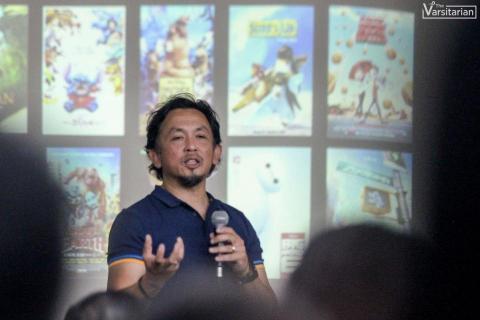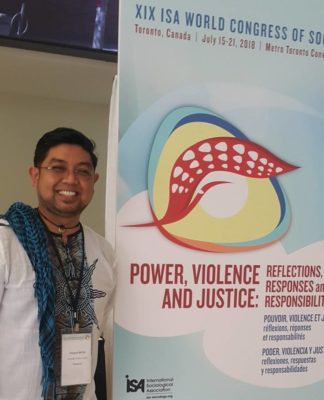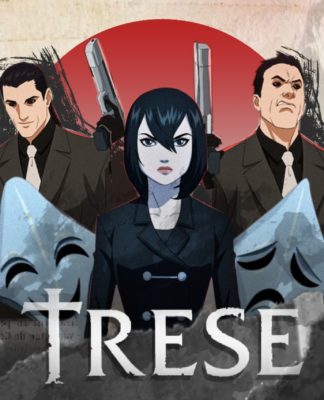FORTY-seven seniors of the College of Education listen attentively in a class as they prepare to become high school teachers soon. But only 17 of them will teach science subjects to their future students.
Out of the 238 Bachelor of Secondary Education (BSE) students in UST, only 25 are majoring in science-related subjects like Biology-Chemistry, Biology-General Science, and Math.
According to Dr. Fortunato Sevilla, dean of the College of Science, the lack of teachers who major in science will only breed more students apathetic to and ignorant of the subject.
“This is a national problem,” Sevilla said. “Some science teachers are non-majors in the subject they teach, so the students do not get quality education and the motivation they need to be interested.”
In 2003, the United States conducted the Trends in International Mathematics and Science Studies, evaluating the proficiency of high school and elementary students of different countries in mathematics and science. Of the 45 countries that participated, the Philippines ranked 41st and 42nd in mathematics and science, respectively.
The Department of Science and Technology (DOST) admits the poor rankings are caused by the large number of science and mathematics teachers who are non-majors in these subjects. Non-science majors are usually tapped to address the lack of science teachers. An article by Raul Pertierra, a professor at the Asian Center of the University of the Philippines, explains that there are few Filipinos who want to take science courses due to the low social status of scientists in the country and their lack of influence in public life.
The medium-term Philippine development plan for 2004-2010 reports that, as of school year 2004-2005, only 44 per cent of biology teachers, 34 per cent of chemistry teachers, and 27 per cent of physics teachers in public schools are majors in the subjects they teach.
To solve this problem, the Science Education Institute of DOST, together with the Department of Education and the Commission on Higher Education, has launched Rescue Initiatives in Science Education (RISE) in 1998. The program aims to train elementary and secondary teachers who are non-majors in science to master the subjects they teach. The training takes place every summer in regional centers of excellence for science education.
So far, RISE has trained over 18,000 science and math teachers all over the country. Government scholarships are also available for college students who take science and technology programs.
Sevilla says that the University also offers the same opportunities to science teachers.
“Teachers who are non-science majors are being trained every summer. The Graduate School offers Chemistry, Biology, and Physics classes for those who did not major in these courses during their college years, to improve the quality of science teachers in high schools,” he said.
At the college level, science curricula in UST are being revised to conform to international standards without sacrificing quality education, Graciano Yumul, undersecretary for Research and Development of DOST, said.
Meanwhile, Asst. Prof. Gliceria May Lagniton of the College of Education is happy that most teachers who took BSE in sciences in UST seldom shift fields.
“After graduation, most, if not all, of our graduates who majored in science subjects practice their profession,” she said. “Maybe because they are really dedicated to teach the science subjects, that after passing the licensure exams for teachers, some of them even pursue graduate studies.”
Lagniton said that UST-BSE students who major in science subjects are confident and knowledgeable and have the potential to become good science teachers.
“We always tell our students to make the subject they teach interesting,” Lagniton said. “We train them to be organized even as students so they will become organized as teachers.”
Science hopefuls
According to Yumul, teachers fail to emphasize the significance of science and math, so students hardly appreciate these subjects.
“Students tend to stay away from science because they can not see the aesthetics of the subject. Science is presented in most schools is for compliance purposes only,” Yumul said. “Science and technology should be presented as something interesting and concrete.”
Yumul said that by eliminating the teacher-student communication gap, teachers will be able to make science and technology appealing to students.
Louie Dasas and Jairus Quitco, junior BSE students majoring in Biology-Chemistry, believe that high-school students are losing interest in science due to the theoretical instruction of the subject. Dasas and Quitco are looking forward to making their future students get interested in science by making the subject dynamic.
“When I become a teacher, I will make science instruction more of a hands-on experience to my students,” Dasas said. “I’ll not only teach them theories, I’ll show them how to apply these in their daily lives.”
Quitco is also hopeful that he will find ways to make science more attractive to students.
“Students find biology and chemistry to be complicated subjects but I plan to teach these subjects in a very creative manner so they can enjoy as well as learn,” he said.
Practicability, creativity, and mastery of the subject are, for these future science teachers, the right ingredients for Filipinos to love science and explore its wonders. Without basic knowledge in science, Filipinos’ vision of progress will in all probability remain an unscientific quest. K. L. Li and C. A. M. Tobias















